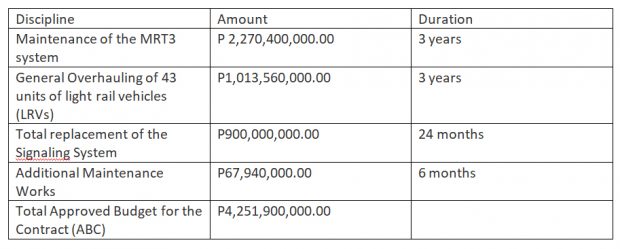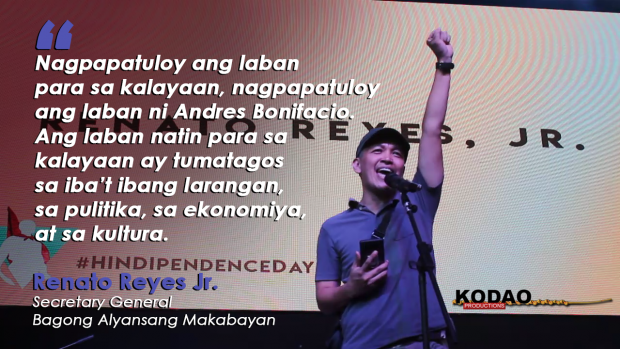A YEAR OF HEROES: A 2022 Yearender
By Renato Reyes Jr., Bagong Alyansang Makabayan secretary general
I will remember 2022 for the heroic sacrifices of comrades and friends who fought for a just, free and democratic society. While there are those are no longer with us, there are also those who continue on the path of resistance. I offer this year-ender as a tribute to all those who have departed while serving the people to their very last breath. I likewise give recognition to the tireless work done by the different sectors, groups and organizations who remain steadfast amid great difficulties. The propaganda machinery of the state will try their best to vilify them and tarnish their memory, but the people know better and these lies will ultimately be exposed.
The start of the year saw the passing of Rita T. Baua, our longest serving official in Bayan, after a battle with cancer. A week before her passing, she struggled to sit on the hospital bed, to raise her fist, for a picture that would be sent to comrades and friends, as if to challenge them to keep fighting.
Not long after Rita’s passing, we mourned the death of Chad Booc who was killed together with Lumad volunteer teacher Jojarain Alce Nguho III, health worker Elgyn Balonga, and drivers Roberto Aragon and Tirso Añar. The military claimed there was an encounter but witnesses deny this. Their deaths were again part of a “fake encounter” used to justify the extrajudicial killings. We also bade goodbye this year to Nelia Sancho, a stalwart of the feminist movement in the Philippines and former Gabriela founder and Bayan chair. This year, we also lost Marie Hilao Enriquez, the former chair of Karapatan, due to illness.
Towards the end of the year, we grieved the death of our dear friend Ericson Acosta, who was killed by the military in another “fake encounter” in Kabankalan, Negros . His death weighed heavily on us, coming a little over a year after the death of his wife Kerima Tariman. The outpouring of love and support however from various sectors and from the cultural community assures us that his memory will live on. The fight for justice will continue in 2024.
And then there was the death of the revolutionary trailblazer and thinker Prof. Jose Ma. Sison, 83, which was mourned all over the world, most especially by activists and revolutionaries in the Philippines. Tributes came in from different groups and personalities amid the relentless attacks by the enemies of the people and absurd restrictions and repeated take-downs by social media giant Facebook. His memory lives on in the people’s struggles for national and social liberation.
The electoral campaign
The year 2022 was marked by intense struggles, from the electoral campaign, to the resistance to a Marcos restoration, continuing human rights violations and the worsening economic crisis.
The first half of the year saw an upsurge in mass mobilizations during the electoral campaign in support of the Opposition forces against the Marcos-Duterte tandem. Hundreds of thousands of people joined the Leni-Kiko rallies across the country. Issues such as the Marcos ill-gotten wealth, human rights violations and abuse of power were discussed on a daily basis during the campaign. After two years of pandemic restrictions, it was time for the people to turn out in large numbers to let their voices be heard. Thousands of volunteers went house to house, and undertook a massive campaign to counter the well-funded machinery of the Marcoses.
The Marcos-Duterte tandem employed a combination of vote-buying, massive disinformation, red-tagging and fascist repression, together with a non-transparent automated election system, to be able to claim victory. It was apparent that despite the clam of 31 million votes, there were no spontaneous celebrations of so-called Marcos supporters in the aftermath of the counting. There were however protest marches in front of the Comelec, near the PICC, the CHR and in Plaza Miranda in the days after the election results were announced.
While Leni Robredo may have conceded the elections, many refused to simply accept the outcome and vowed to continue fighting. Ika nga, kapag namulat, kasalanan na ang pumikit. We welcome the many concerned individuals and activists who have taken the extra step beyond the electoral arena, and into the much wider arena of struggle for systemic change.
Political prisoners fight back
This year saw the release of several political prisoners including labor leader Dennise Velasco, and the Tondo 3 of Reina Mae Nasino, Alma Moran and Ram Carlo Bautista, Bayan Panay chair Elmer Forro, Bayan CL chair Pol Viuya, Karapatan human rights worker Nimfa Lanzanas from Laguna, and several others from Bicol and Cagayan. They are all victims either of questionable search warrants or plain trumped-up charges. The State, especially under Duterte, has resorted to the perversion of the legal system and gross violations of due process just so they could put activists behind bars. Many remain incarcerated on false charges, including several peace consultants of the NDFP. The political prisoners who continue to struggle even when behind bars, are among this year’s heroes.
ML@50
The Filipino people observed the 50th anniversary of the imposition of Marcos’ martial law with a firm commitment to never forget and to fight historical distortions aimed at whitewashing the crimes of the dictator. During this period, there were lectures, historical tours, film screenings, and a huge gathering in UP, all with the same message of “never again” and “never forget”. Katips the Movie served as a timely counterpoint to Maid in Malacanang. The Bantayog ng mga Bayani became a classroom for lessons on history.
Revolutionaries are not terrorists
On the same day the Filipino people were commemorating the 50th anniversary of Martial Law, news broke that a Manila RTC judge dismissed the proscription case filed against the Communist Party of the Philippines – New People’s Army. Overnight, Judge Marlo Malagar became the number one target of the mouthpieces of the NTF-ELCAC, which even earned one a show cause order from no less than the Supreme Court. The decision of Judge Malagar provides an interesting legal insight on why revolutionaries, and those who take up arms for clear political objectives and programs, are not necessarily terrorists. It also exposed the folly of the Philippine government’s attacks against the revolutionary forces, instead of addressing the roots of the armed conflict.
PH human rights record under scrutiny
The Philippine government’s human rights record came under heavy scrutiny by United Nations member-states during the regular Universal Periodic review. Several states called for accountability in the drug war killings under Duterte, an end to red-tagging of activists and journalists, and for the Philippines to rejoin the ICC. The Philippine government was put on the defensive over the lack of meaningful changes in the human rights situation in the Philippines after the Marcos regime took power. During the year, we witnessed intense militarization of the cities and countryside, including the bombings and artillery shelling of communities and forrest areas suspected of being NPA encampments. The practice of forcing civilians to “surrender” as members of the NPA, to be paraded in public as part of the so-called “localized peace talks” aka “surrender talks”, continues.
Another victory for justice was achieved when a Bacolod court convicted two military personnel over the killing of labor organizer and Bayan Muna coordinator Benjamin Bayles 12 years ago in Himamaylan, Negros Occidental.
Protests against Kamala, US military aid
During the second half of the year, US Vice President Kamala Harris visited the Philippines to promote the lopsided US-PH relations. The US continues to maintain its strategic interest in the Philippines and Asia, with Marcos Jr providing unqualified support for his imperialist masters. Marcos Jr, during his recent trip to the US, which was met with daily protests, Marcos said he could not imagine a future without the US. The US State Department meanwhile has pledged to provide $100 million in military aid to the Philippines, which will likely be used for state terrorism against revolutionary groups and the people. Marcos is seen moving closer to the US than his predecessor.
The economic crisis and the people’s response
The start of the Marcos II regime was marked by public debt at a historic high, soaring inflation, a weakening peso, and a clamor for higher wages and lower prices. Inflation and low wages were consistently the top two concerns of the people, according to surveys. This year brought us record high prices for gasoline and onions, bringing tears to the eyes of consumers.
Amid the economic crisis, the Marcoses were seen partying in Singapore for the F1 Grand Prix, an incident which drew widespread criticism of the ostentatious lifestyle of the President.
Before the year ended, labor groups and consumers were clamoring for a substantial wage hike and for government intervention to lower prices. Various labor groups joined forces for a huge march on November 30, the birth anniversary of the revolutionary Andres Bonifacio, to call for the implementation of the family living wage.
Mass transport crisis remains
As COVID restrictions were eased and the movement of people increased, the issue of the mass transport crisis again came to the fore. Free rides at the EDSA Carousel are about to end, and the Marcos regime is now thinking of privatizing the carousel. The NAIA is also slated for privatization. Instead of investing in mass transport and basic transportation facilities, the Marcos regime has chosen the discredited path of privatization which will inevitably lead to price increases and profit guarantees shouldered by tax payers. Just take a look at the water services which are set to increase again over the next five years, or the rising cost of privatized electricity which are a source of non-stop burden for consumers. Privatizing mass transport shows a lack of effort and long-term solutions on the part of the government.
SIM card registration
Before the year ended, mobile phone users were forced to register their SIM cards starting December 27. On its first few days, there were already problems that threatened the privacy of consumers. Selfies were required from people registering their prepaid SIM cards even if such was not part of the law. Some telcos made their subscribers sign waivers on the use of their data by the telcos, which proved the criticism of various groups that user’s privacy will be compromised as telcos attempt to profit from these. The collection of user’s personal information in a data base by telcos poses many problems which we are seeing unfold right now. It will only be a matter of time before this law is again challenged in the courts and in the streets.
Mandatory ROTC and Maharlika Fund
Before session ended, two measures were rushed by the allies of the President in the Lower House, These were the Maharlika Investment Fund, whose name was a deliberate throwback to the dictator Marcos, and the two-year mandatory National Citizens Service Training (NCST) program. The Maharlika Investment Fund was initially met with strong opposition when it proposed to utilize the pension funds of the SSS and GSIS. The proposal comes in the wake of massive public debt and a looming global recession in 2023. It has been branded as a vehicle for crony capitalism, wherein state funds are funneled into companies with suspected links to the families in power. The NCST meanwhile has been criticized as “mandatory ROTC in disguise” and as another means of extending the reach of the military inside educational institutions.
For the year 2023, we draw inspiration from our heroes who have passed on, and from the heroes who continue to fight on despite tremendous challenges. We have an unshakeable faith in the people, in their capacity to understand, act and triumph. Ang masa, ang siyang tunay na bayani, as the song goes. We remain ever optimistic and steadfast in the struggle. #




